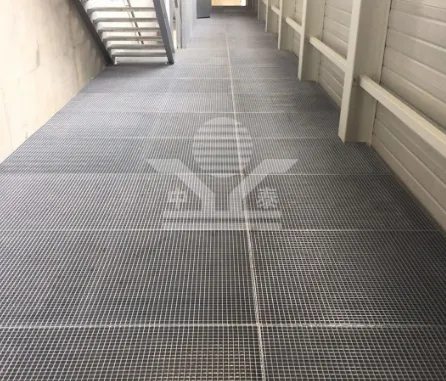Understanding Sound Barriers for Residential Homes
As urban areas continue to expand and noise pollution becomes an increasingly prevalent issue, the need for sound barriers in residential properties has gained more attention. Sound barriers, created to reduce noise from external sources such as road traffic, construction, and industrial activities, can significantly enhance the quality of life for homeowners. This article explores the significance of sound barriers, their types, benefits, installation considerations, and maintenance.
The Importance of Sound Barriers
Noise pollution is not just an annoyance; it can have profound effects on health and well-being. Prolonged exposure to high noise levels is linked to various adverse effects, such as sleep disturbances, increased stress levels, and even cardiovascular diseases. According to the World Health Organization, a noise level of over 55 decibels at night can negatively impact sleep quality. Thus, installing sound barriers becomes essential for those living in bustling cities or near busy highways.
Types of Sound Barriers
There are several types of sound barriers available for residential use, each with distinct characteristics and effectiveness
1. Walls and Fences Solid barriers made from materials like wood, brick, or concrete can reduce noise by reflecting sound waves. The height and mass of these barriers are crucial. Generally, taller and denser barriers are more effective.
2. Earth Mounds (Berms) Landscaping techniques can involve creating raised earth mounds. These not only act as sound barriers but also enhance the aesthetic appeal of the property.
3. Plants and Greenery Dense vegetation, such as shrubs and trees, can provide a natural sound barrier. They absorb and diffuse sound waves, and their effectiveness increases with the number and diversity of plants used.
4. Acoustic Panels For homeowners looking to address sound within their property, acoustic panels can be installed on walls and ceilings. These panels absorb sound rather than reflecting it, effectively reducing noise in and around living spaces.
Benefits of Sound Barriers
Investing in sound barriers offers numerous benefits to homeowners
- Improved Quality of Life Quieter neighborhoods contribute to better relaxation and productivity, allowing residents to enjoy peace in their homes.
- Increased Property Value Properties situated in quieter areas tend to attract higher offers. A well-maintained sound barrier can enhance the appeal of a home to potential buyers.
- Enhanced Outdoor Living Sound barriers can create a more enjoyable outdoor experience. Whether it’s relaxing in the garden or entertaining guests, reduced noise levels make outdoor spaces more inviting.
sound barrier for house

- Thermal Insulation Many solid sound barriers also offer thermal benefits, helping to regulate home temperatures and reduce energy costs
.Installation Considerations
When planning to install a sound barrier, homeowners should consider several factors
- Local Regulations Before initiating construction, it’s crucial to check local zoning laws and regulations regarding noise barriers. Some municipalities may have specific guidelines concerning height, materials, and placement.
- Noise Assessment Understanding the noise sources and levels around the property will help determine the type of barrier needed. Conducting a noise assessment can identify the most effective solution.
- Aesthetic Integration Sound barriers should complement the home’s architecture and landscaping. A well-designed barrier enhances the overall appearance rather than detracting from it.
- Cost and Maintenance Homeowners should evaluate their budget for installation and ongoing maintenance. Some materials require more upkeep than others, which can affect long-term costs.
Maintenance of Sound Barriers
After installation, regular maintenance is crucial to ensure the effectiveness of sound barriers
- Inspect for Damage Periodically check for any wear, rot, or degradation, especially for wooden barriers. Timely repairs can prolong their lifespan and effectiveness.
- Trim Vegetation For plant-based barriers, maintaining the health and density of the vegetation is key. Keeping shrubs and trees well-trimmed not only helps in noise reduction but also contributes to the overall health of the plants.
- Cleaning For acoustic panels and other solid barriers, periodic cleaning can help maintain their sound-absorbing properties.
Conclusion
Sound barriers play an essential role in enhancing the comfort and tranquility of residential spaces. By understanding the various types available, their benefits, and considerations for installation and maintenance, homeowners can take proactive steps towards reducing noise pollution in their lives. Investing in a sound barrier not only improves the living environment but also promotes a sustainable and healthy lifestyle in our increasingly noisy world.
-
Turn Down the Noise: The Future of Highway Sound Barriers
NewsApr.09,2025
-
Silence the Sound: The Power of Highway Noise Barriers
NewsApr.09,2025
-
Reduce Road Noise Effectively with Highway Noise Barriers
NewsApr.09,2025
-
Noise-Free Living: How Highway Barriers Make a Difference
NewsApr.09,2025
-
Engineered for Silence: Highway Noise Barriers for Every Road
NewsApr.09,2025
-
Effective Noise Control: Highway Barriers for a Quieter Tomorrow
NewsApr.09,2025
Subscribe now!
Stay up to date with the latest on Fry Steeland industry news.

